In general, corn kernels that are cooked are safe for most dogs to eat in moderation but the corn cob itself is not.
With summer knocking on our front door, graduation parties, backyard grilling and pool parties are on everyone’s to-do list.
These summer activities most often go hand in hand with good food and our dogs by our side.
Most dogs will try to flash their brown puppy dog eats to try and get us to share a bite of our food and while the occasion piece of hot dog or watermelon might be fine for them to enjoy, there are definitely some summer food that dogs should keep their paws off of.
You’re probably familiar with the common foods that are unsafe for dogs such as chocolate, grapes, raisins and beverages containing alcohol but one food that might surprise you that dogs shouldn’t eat is corn on the cob.
The corn kernels on the cob are safe for most dogs to snack on but that cob, well that cob is not safe for dogs at all.
Corn cobs are dangerous to dogs due to their size, shape, and indigestible nature. When dogs chew on or ingest corn cobs, they can cause blockages in the digestive tract, leading to severe health complications. The cylindrical shape of corn cobs makes it difficult for them to pass through the narrow intestines, potentially requiring surgery to remove the obstruction. Additionally, corn cobs can splinter into sharp fragments, causing internal injuries. It’s crucial to keep corn cobs out of reach from dogs to prevent these dangerous and scary situations.

Can Dogs Eat Corn Cobs?
No.
Corn cobs are and will always be dangerous for dogs to ingest.
Some people are going to play games with pet owners when you ask that question but no, dogs should never be given corn on the cob to gnaw on.
Sure, if you hand your dog a cob of corn, they’re going to bite the corn off first which isn’t a problem.
However, next, a dog is going to try and eat the cob.
The cob is the problem itself and it is not safe for dogs to ingest.
This is because dogs cannot digest the tough and fibrous material of corn cobs, which can lead to intestinal blockages.
The cob can get stuck in the dog’s digestive tract, causing vomiting, diarrhea, and abdominal pain.
In severe cases, surgery may be necessary to remove the blockage.
Additionally, if the cob is swallowed in large chunks, it can pose a choking hazard to your dog.
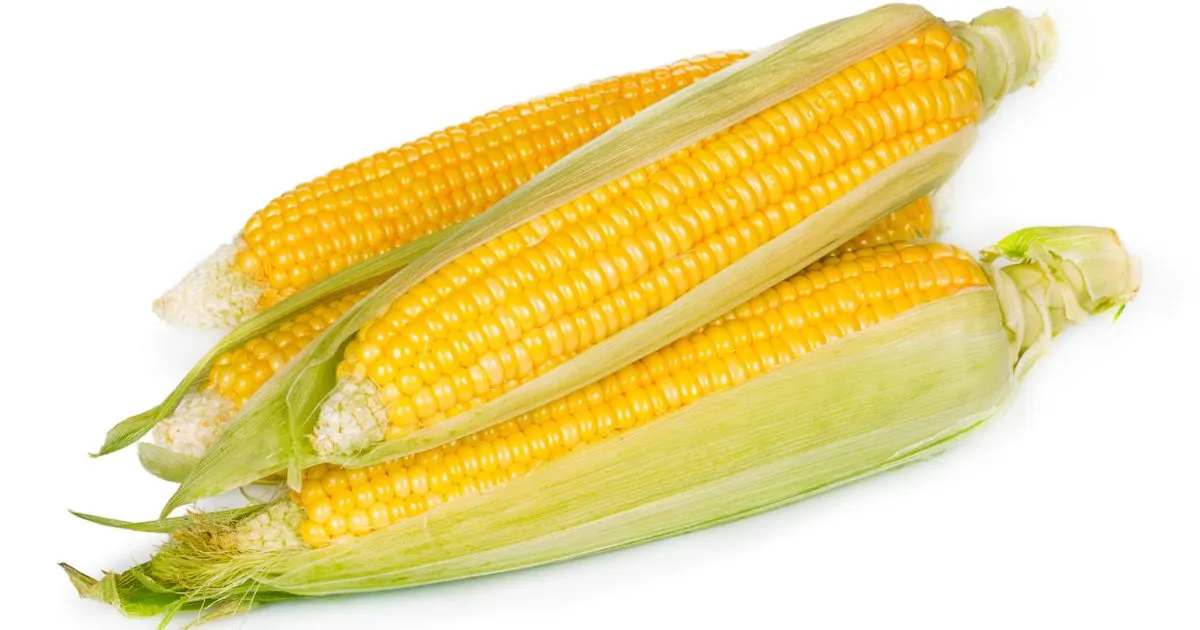
But thousands of dogs a year are given a corn cob to chew on or they find one in the trash and the outcome is an expensive one.
Corn cobs are one of the leading causes of intestinal blockages seen in dogs and if ingested, they need to be removed because they will not break down in your dog’s stomach.
If the cob is not removed, it can turn into a fatal bowel obstruction.
The Veterinary Information Network (VIN) states that “Ingestion of a corn cob can result in obstruction of the small intestine or colon, leading to significant vomiting, anorexia, and/or depression.”
They recommend prompt veterinary care if a dog ingests a corn cob.
If you suspect that your dog has ingested a corn cob, seek veterinary attention immediately.
Your vet may need to perform diagnostic tests, such as X-rays, and may recommend treatment options such as surgery or endoscopy to remove the blockage.
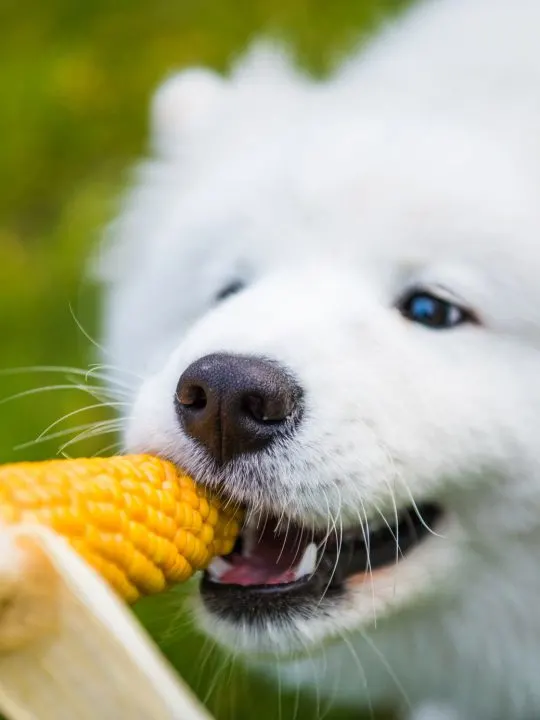
I love Ohio sweet corn, however, having corn on the cob has always made me a little nervous with dogs around, especially Leroy who has been known to eat things like rocks and other items that don’t digest.
The fear of dogs and corn cobs was put into me several years ago when I worked at the vet clinic and one of the receptionists brought her dog in that was very ill.
After being examined by the veterinarian and having x-rays done it was determined that the dog had an obstruction in his stomach.
Off to surgery they went and within 30 minutes a 2-inch corn cob was removed from the dog’s stomach.
They weren’t sure exactly how long it had been in there but the lining of the stomach had begun to rot.
Thankfully after months of setbacks, loads of medications and several rechecks the dog made a full recovery.
This wasn’t the last corn cob I would see be pulled from a dog’s stomach, for some reason that summer they just kept coming.
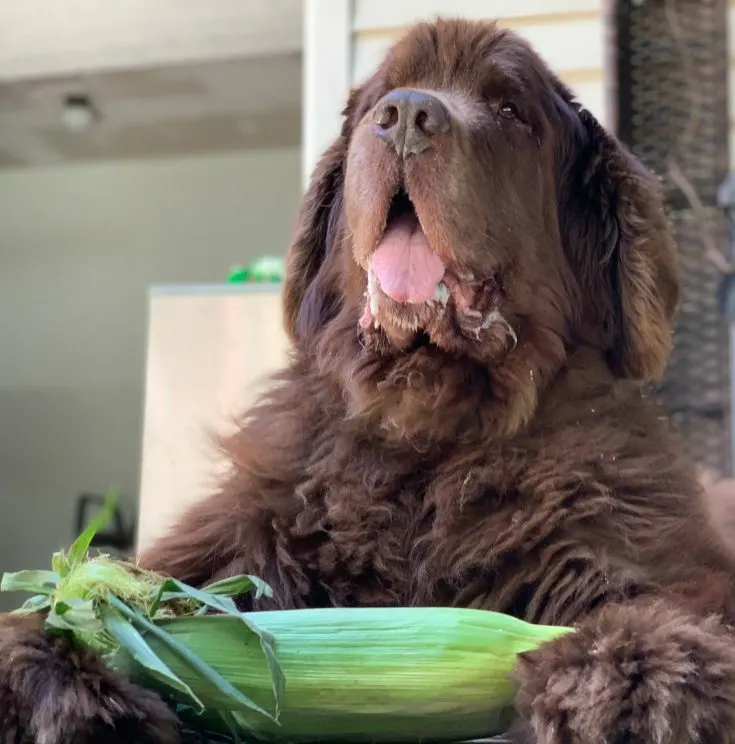
Can Dogs Eat Corn Kernels?
Corn alone is a carbohydrate and contains several vitamins and minerals depending on the type of corn.
It’s low in fat and calories but whole corn isn’t as easy for dogs to digest as other carbohydrates.
Most dogs can eat plain cooked corn in moderation but the core of the corn should not be given to dogs.
The core is not digestible and if swallowed in big pieces it can be a choking hazard or it can become lodged in the intestines creating an obstruction.
Dogs can get ahold of corn cores and consume it fast so if you’re going to give your dog some corn off of the cob you should remove the corn and feed it plain without butter and salt since this can cause pancreatitis in some dogs.
Signs Of a Cob Corn Obstruction
When your dog eats, it usually takes between 10-24 hours for the food to move through the entire digestive tract.
Some bigger objects, like corn cobs, can take much longer.
Signs of a corn cob blockage in dogs can be:
- vomiting
- straining to defecate
- loss of appetite
- diarrhea
- lethargy
- stomach pain or tenderness in the abdomen
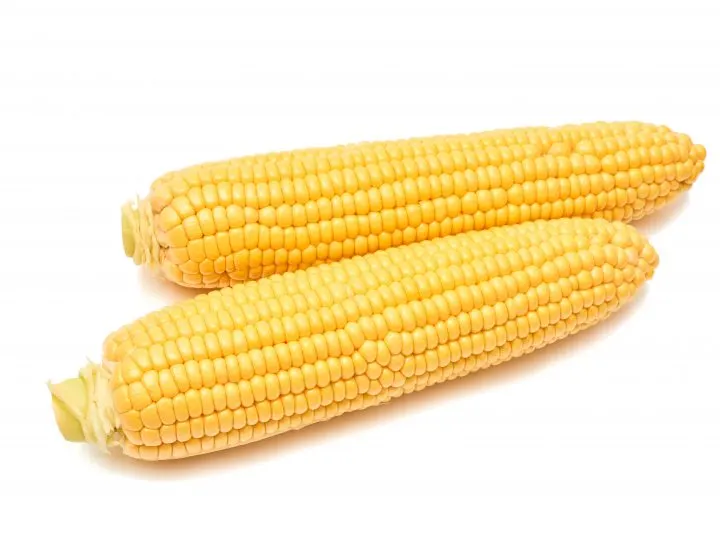
How Long Can A Corn Cob Stay In A Dog’s Stomach?
If a corn cob is not stuck in the intestines but resting in the dog’s stomach it will be there until it’s surgically removed.
This can be weeks or even months if a dog isn’t displaying signs of being sick and if their owner doesn’t know that they ate the cob.
The longer the corn cob sits in a dog’s stomach the more serious the situation can become.
If you know that your dog ate a corn cob but seems fine after a few days, you should still contact your veterinarian.
Just because your dog isn’t showing signs of being sick after swallowing a cob, doesn’t mean that the cob isn’t doing damage to your dog’s intestines.
How To Help A Dog That Ate Corn On The Cob
If you know that your dog ate a piece of the corn cob, it’s important to seek veterinarian treatment.
Since a corn cob can be a choking hazard for dogs, it is not recommended to induce vomiting unless instructed by your vet.
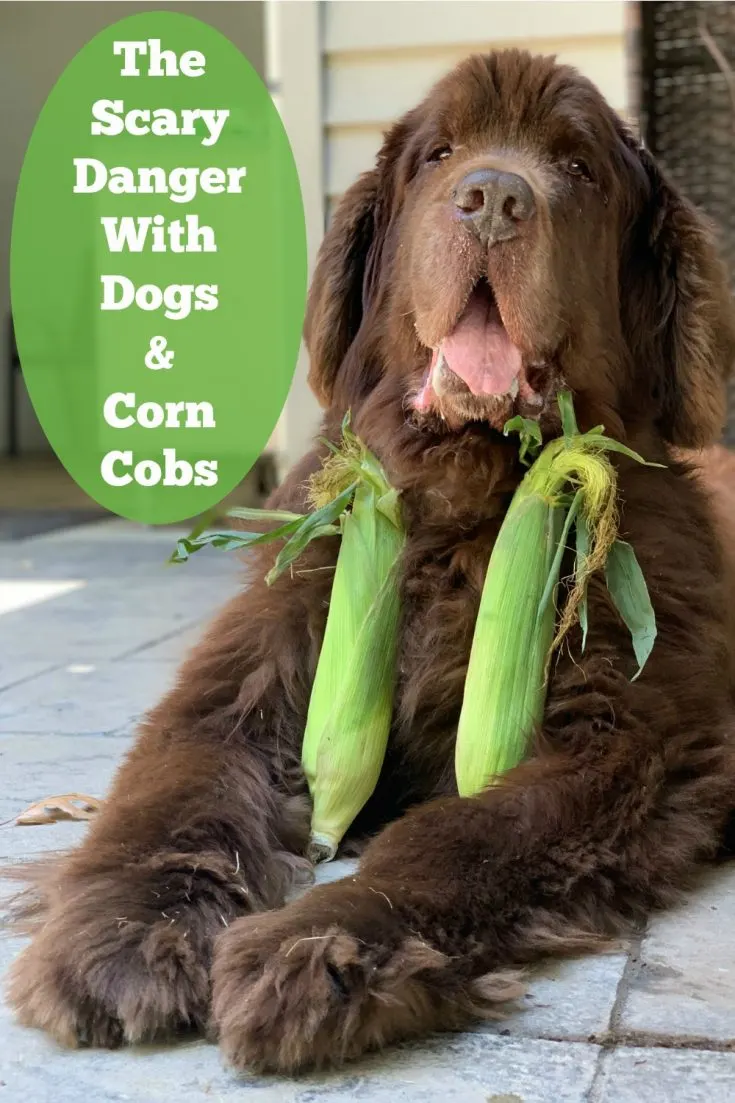
How To Prevent Dogs From Eating Corn Cobs
Knowing the dangers of giving dogs corn cobs and prevention is key!
If you have a dumpster diver (garbage can diver) it’s best to dispose of the corn cob in another trash bin that your dog doesn’t have access to and that has a locking lid.
Sherman and Leroy don’t try to get in the trash anymore but just to be safe we place our eaten corn cobs in a small bag and then place them in a sealed garbage can in the garage.
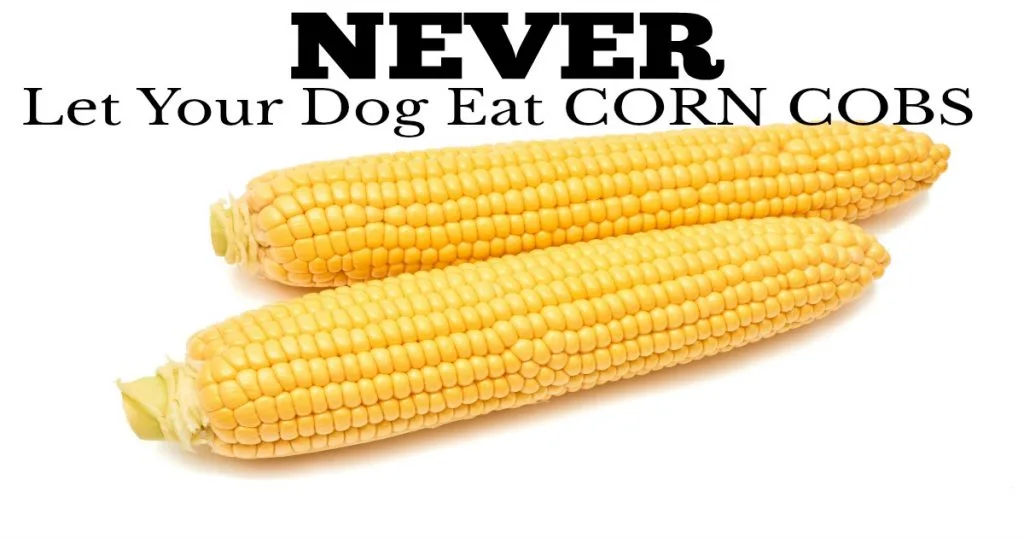
I try not to place them in outside trash bins where raccoons may be able to get them because then there’s a chance that we might encounter that somewhere down the road on our walk.
Watch out for falling corn cobs.
Don’t leave corn on the cob for the birds or squirrels.
There’s a chance they could grab the cob and drop it in your yard.
We don’t have a bird feeder in our yard but our neighbor does.
One day I realized that they were leaving corn on the cob out in their feeder and I politely asked if they would mind not doing that.
They had no problem with my request and didn’t realize that it could be a hazard for dogs.
Conclusion
In conclusion, while corn kernels themselves are safe for dogs to eat in moderation, corn cobs pose a significant risk to your dog’s health.
To prevent your dog from ingesting a corn cob, always dispose of them properly in a secure trash can, and keep them out of your dog’s reach.
If you suspect that your dog has ingested a corn cob, seek veterinary attention right away.
Remember, early detection and treatment can help prevent serious health complications and potentially save your dog’s life.
Tails Around the Ranch
Wednesday 24th of July 2019
Knowing my Ninja knucklehead, I wouldn't put the snarfing of a corn cob passed Elsa. Luckily corn on the cob is hardly likely to grace the Ranch premises; there are other tasty treats we all prefer that aren't as dangerous.
Jen
Friday 26th of July 2019
Yeah, we're extra careful with Leroy being Leroy!